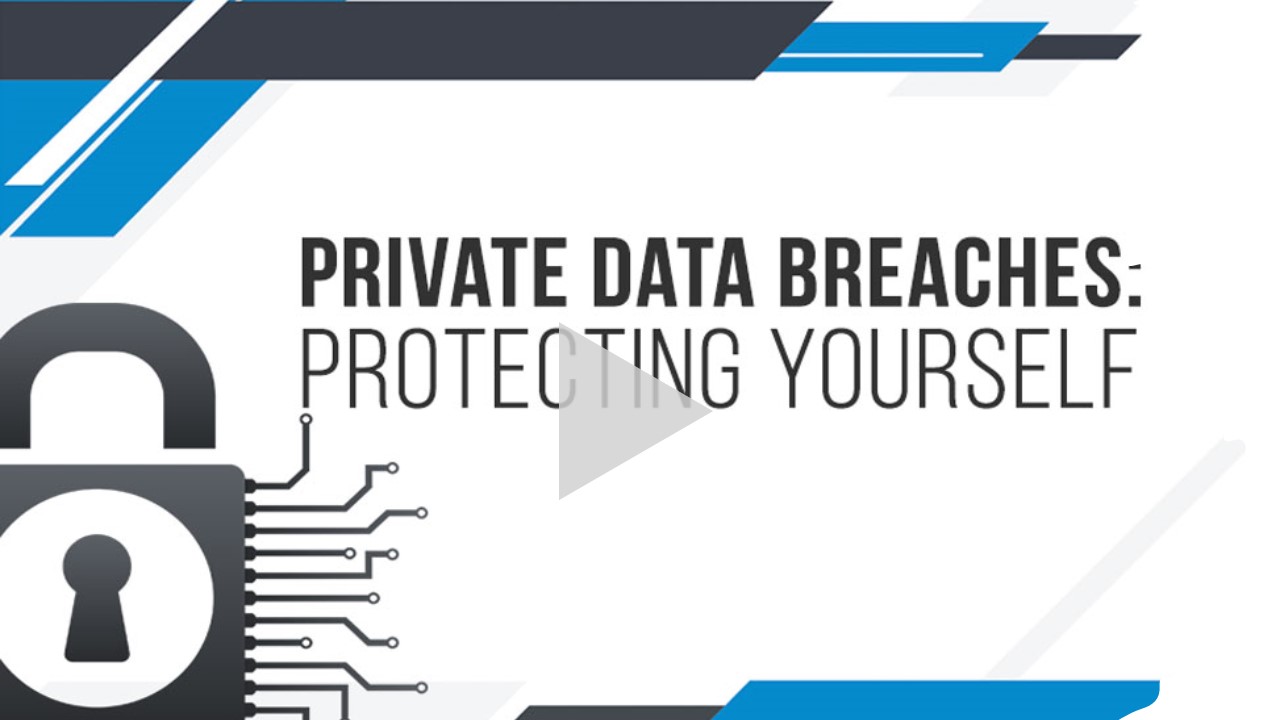Identity Theft and Security
NEW INTERACTIVE SECURITY VIDEO!

QR Code Security
This video will guide you through the essentials of QR code safety, highlighting common scams and how to avoid them. You'll learn how to verify QR codes before scanning, recognize potential threats, and protect your personal information from fraudulent links.
Watch Now
Our Commitment to Your Financial Security
We are consistently taking steps to protect the financial well-being of our members and to keep their personal information safe.
- We diligently monitor accounts and verify suspicious transactions.
- We take extra precautions to confirm member identity.
- We provide 24-hour phone support for lost or stolen cards.
- We offer the ability to change personal identification numbers (PINs) on USSFCU cards at USSFCU ATMs.
- We do not hold members liable for unauthorized transactions on their USSFCU cards.
- We adhere to the "Know Your Customer" process to verify our member's identity.
USSFCU will never ask you for your personal information via text or email.
Personal information includes your credit card number, member number, social security number, date of birth, etc. If you receive a text or email from USSFCU requesting any personal information, do not reply, instead contact us immediately at 800.374.2758.
{beginAccordion}
What is the "Know Your Customer" Process?
Know Your Customer (KYC) is the process of verifying the identity of a member through an independent and reliable source of documents, data, or information. Different information is requested depending on whether you are an individual member or an entity.
-
For individual members, the Credit Union will obtain the member’s identity information, which includes full name, address, taxpayer identification number (TIN), and date of birth.
-
For non-individual members or entities, the Credit Union will obtain identification data to verify the legal status of the entity, the operating address, and the individuals with ownership or control over the account (i.e., beneficial owners, signatories, or guarantors).
Information is also required regarding the nature of employment/business that the member does or expects to undertake, the purpose of opening the account with the Credit Union, as well as the expected activity on the account.
KYC is to be performed at the time of opening a new account and periodically thereafter. It may be necessary to obtain additional information from existing members based on changes to the account. Similarly, an existing member will be required to provide updated information for new account openings to adhere to the regulatory requirements.
Please note, that the Credit Union is entitled to decline opening an account or discontinue an existing relationship if there is a failure to meet the minimum KYC requirements.
Protect Yourself from Identity Theft: Practical Steps to Take
Identity thieves can do a lot of damage, and their success depends greatly on the steps you take to protect yourself. Considering how much is at stake, making the extra effort is well worth it.
Keep Your Personal Information Private
Social media is a great place to share information. However, that should never apply to personal information. If you share even innocent-sounding data, like your birthday, workplace, or phone number, you give thieves openings to attack your identity. You can protect yourself through strict privacy settings that prevent strangers from seeing personal information. In addition, you should omit personal information in your posts and tweets. Once that information is out there, you can never erase it.
Limit Your Digital Footprint
That footprint includes items such as usernames, online searches, purchasing behavior, and electronic transactions. Protective steps you can take include deleting old accounts, browsing incognito, and removing yourself from data collection sites, which is something you can hire a service to do. Consider using a virtual public network (VPN) to protect your privacy as you surf the web and/or share files. When shopping online, use temporary virtual credit card numbers (available from card issuers or third-party services) to reduce your exposure to fraud.
Avoid Risky Behavior
This starts with using different passwords for different accounts. Keep all your passwords in a secure online vault so that you don’t have to remember them and change your passwords often. Never click on an unexpected email link, even if it looks safe, as doing so exposes you to a phishing attack. Instead, contact the email party by going to the supposed website through your browser. Never type your password or user ID into an unfamiliar sign-in screen.
Monitor Your Credit Reports
The credit reports maintained by the three major credit bureaus (Experian, TransUnion, and Equifax) are available for free at AnnualCreditReport.com. By reviewing your reports, you can spot suspicious activity or unfamiliar accounts that indicate possible identity theft. Immediately dispute any mistaken data by directly contacting the credit bureau. Also, set up your financial accounts to provide fraud alerts in real time. Consider subscribing to a protection service to help prevent and repair identity theft.
Be Observant when Withdrawing Money from ATMs
Look for worn-down parts and malfunctioning screens. These may indicate the presence of a card skimmer. Contact us if you think you have used a compromised ATM.
Monitor Your Checking and Savings Accounts
Use mobile banking and check your accounts frequently. Sign up for alerts that instantly notify you of transactions.
Safeguard Your Username and Password
Never share your username and password. Change your passwords every 30-60 days especially if you are using third-party aggregators such as Mint, Quicken, or Acorn.
Be Mindful of Your Wi-Fi Connection
Never log in to your account through a public or unsecured connection.
{endAccordion}
If you suspect that your personal information is being misused, navigate to IdentityTheft.gov, the centralized hub established by the federal government for reporting and rebounding from identity theft. This platform offers comprehensive guidance, featuring step-by-step instructions and valuable resources such as easily printable checklists and sample letters.
Enhance Your Digital Security with Our Educational Videos
At USSFCU, we are dedicated to helping you protect your personal and financial information. Explore our series of security videos to learn valuable tips and strategies for staying safe online.



The content on this page provides general consumer information. It is not legal advice or regulatory guidance. We do not endorse or guarantee the accuracy of third-party information.



